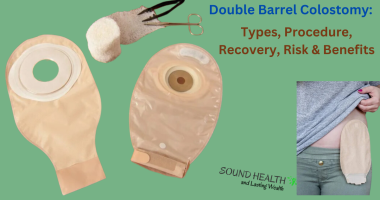Yes, there is a growing body of evidence suggesting that mindfulness can promote good health. This includes both physical and mental health benefits.
This article explores the use of mindfulness-based stress reduction (MBSR) to promote healthy aging in vulnerable populations, specifically older Portuguese-speaking immigrants in Luxembourg.
Motivation
- High immigrant population: Luxembourg has a large number of older Portuguese immigrants, making up over 4% of the population aged 65 and above.
- Vulnerability: These immigrants face language barriers, have fewer resources, and lack social support, putting them at risk for cognitive decline and poor health outcomes.
- MBSR as a potential solution: Studies have shown the effectiveness of MBSR in improving cognitive functioning and reducing stress, making it a promising tool for this population.
Study design
- Randomized controlled trial comparing MBSR with a health promotion program (HPP).
- Participants were recruited through recreation clubs, Portuguese Associations, and mass media.
- 90 participants were enrolled and randomly assigned to either the MBSR or HPP group.
- Baseline assessments included questionnaires, cognitive tests, and qualitative interviews.
- Interventions were delivered in weekly sessions for 2.5 hours each over 8 weeks.
- The MBSR group received training in mindfulness meditation and related practices.
- The HPP covered topics related to dementia risk factors, healthy behaviors, and cognitive stimulation.
- Post-intervention assessments were conducted to evaluate the effectiveness of each program.
Expected results
- Primary hypothesis: The MBSR group will show greater improvements in cognitive function and stress reduction compared to the HPP group.
- Secondary hypotheses: Both groups will benefit from the interventions, and the MBSR group will show greater improvements in other outcomes such as depression, anxiety, and sleep quality.
Unique aspects of the study
- Innovative control condition: The use of an active HPP control group allows researchers to isolate the specific effects of the MBSR intervention.
- Surrogate measures: The inclusion of cortisol and HRV measures strengthens the assessment of stress reduction and cognitive function.
- Focus on a vulnerable population: This research provides valuable insights into promoting healthy aging among immigrants who face specific challenges.
Potential implications
- Evidence for non-pharmacological interventions: This study adds to the growing evidence base for the effectiveness of mindfulness interventions in improving health and well-being.
- Informing policy and practice: The findings can inform the development of programs and policies to support healthy aging in immigrant populations.
Overall, the MEDITAGING study provides valuable insights into the potential of mindfulness interventions to promote healthy aging in vulnerable populations like older immigrants. The use of a non-pharmacological intervention like MBSR highlights its potential as a complementary approach to improve cognitive health and well-being. Study source
ALSO READ: Meditation Diet: 7 Mindful Eating Habits To Enhance Your Practice

Benefits Mindfulness
Physical health:
- Reduced stress levels: Mindfulness can help manage stress hormones like cortisol, which can contribute to various health problems. Lower stress levels can lead to improved sleep quality, reduced blood pressure, and a stronger immune system.
- Pain management: Mindfulness can help individuals manage chronic pain by focusing attention on the present moment and accepting sensations without judgment. This can lead to reduced pain perception and improved quality of life.
- Improved sleep: Mindfulness practices like meditation can promote relaxation and better sleep hygiene, leading to improved sleep quality and duration.
- Cardiovascular health: Studies suggest that mindfulness may improve heart health by reducing stress and inflammation, potentially lowering the risk of heart disease.
Mental health:
- Reduced anxiety and depression: Mindfulness can help individuals manage negative emotions by teaching them to observe their thoughts and feelings without judgment. This can lead to reduced anxiety, depression, and rumination.
- Increased self-awareness: Mindfulness helps individuals become more aware of their thoughts, emotions, and physical sensations, leading to increased self-understanding and acceptance.
- Improved emotional regulation: Mindfulness practices can help individuals develop healthier coping mechanisms and manage difficult emotions in a more mindful and constructive way.
- Enhanced cognitive function: Some studies suggest that mindfulness can improve cognitive function, including memory, attention, and focus.
Overall well-being:
- Increased resilience: Mindfulness can help individuals cope with stress and challenges more effectively, leading to increased resilience and better well-being.
- Improved relationships: Mindfulness can help individuals become more present and engaged in their relationships, leading to deeper connections and improved communication.
- Greater sense of purpose and meaning: Mindfulness can help individuals connect to their values and find meaning in their lives, leading to increased life satisfaction and purpose.
Evidence for these benefits comes from numerous scientific studies, including:
- Meta-analyses: These reviews of multiple studies have found consistent evidence for the positive effects of mindfulness on various mental and physical health outcomes.
- Randomized controlled trials: These are considered the gold standard of research and have shown that mindfulness interventions can be effective in reducing stress, anxiety, and depression, as well as improving sleep quality and pain management.
- Neuroimaging studies: These studies have shown that mindfulness practices can alter brain activity in areas associated with attention, emotion regulation, and self-awareness.
Continue to check our website soundhealthandlastingwealth.com for more articles of this kind. And, please use our comment section as well, we would love to hear from you.










